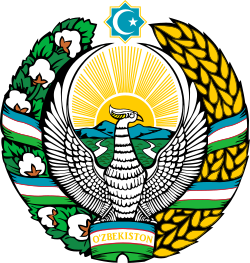STAND AGAINST DRUGS [SADs] PROJECT 2018-2019
The Project Website: https://www.terrampacis.org/projects/current-projects/sads---stand-against-drugs-86.html
Research Area: Non-formal Education, Drugs Addiction, Cultural Diversity
Timing: 2018-2019
Location: Uzbekistan, Norway, Malta, Italy, Romania
OVERVIEW
The goal of ‘Stand Against Drugs [SADs]’ Project is to bring together European and non-European participants and to learn them drug abuse prevention methods and how to engage their society in fighting against drugs as well as raising awareness about healthy lifestyle among the youth as there might be problems related with drug abuse in every country which come on the surface of society's life because of stress, limited material possibilities or financial problems in dysfunctional families without status.
Project introduced participants to the concepts of universal drug abuse prevention programs through youth work just to make great strides in developing both the knowledge and tools that can stem the tide of drug abuse and curb its devastating effects on young people and on the community as a whole through media and community-based interventions (Norway, Uzbekistan, Italy, Malta, Romania).
Photos by TSUULL
The partners grasped the complex challenges of drug abuse on a youth social, educational, cultural and/or personal development and became familiar with the multiple forms of universal drug abuse prevention programmes, by developing sustainable solutions to address drug problems and their social consequences such as weak parenting, school drop-outs, unsafe sexual practices, or sexual and domestic violence, etc.
Since these daunting drug problems are likely to be paired with any number of other difficulties in youth and their adult lives; thus, how can young people be educated and/or empowered to reduce and prevent them from abusing drugs? What are their knowledge and learning needs and most importantly what kind of drug abuse prevention programmes can help them? And what are the learning needs of those facilitating youth training and/or empowerment?
Photo by TSUULL
Thus, the project was designed to seek answers to these questions by promoting a sustainable youth work in drug abuse prevention through universal programs that are meant for everyone within a youth association, a youth center, school, a community, or a similar group to reduce the prevalence of drug abuse among young people and raise an awareness on the effects of drugs abuse on youth's mental health and well-being as well as their social consequences.
PARTICIPANTS
The consortium of seven Project Partners from five different countries: Italy, Malta, Uzbekistan, Romania and Norway implemented the Project. The countries are represented by NGOs, state agencies and academic communities as Colleges and Universities.
ACTIVITIES
The project comprises a:
(1) Kick-off meeting in Tashkent, Uzbekistan,
(2) Youth Exchange in Tromsø, Norway,
(3)Training-course on Drug Abuse Prevention in Gozo Island, Malta,
(4) Training-course on Drug Prevention Awareness Campaigns in Mezzano, Italy,
(5) Conference ‘Preventing Drug Abuse in Romania, Norway, Malta, Uzbekistan and Italy’ in Targoviste, Romania.
(1) Kick-off meeting in Tashkent, Uzbekistan
In April 2018 in Tashkent a joint kick-off meeting was held with Project Participants from Italy, Romania, Malta and Norway. SADs was an international project in the EU education programme Erasmus+.
Photo by TSUULL
The Project members discussed meeting was about mobility of youth and of youth workers to improve drug abuse prevention interventions in youth work. Hence, the project’s name sends a positive signal towards standing against drug abuse among young people to foster both the learning needs of youth workers and learning approaches with young learners in drug abuse prevention through non-formal education practices.
(2) Youth Exchange in Tromsø, Norway
This is a three-day seminar-workshop in the framework of ‘Stand Against Drugs [SADs]’ Project aimed at intensifying initiatives against substance abuse among youth and University student leaders who will become partners in strengthening and mobilising student organisations to incorporate and sustain in their general plans of action, various initiatives relative to drug abuse prevention education. designed to create awareness on the drug abuse problem and generate social response on its prevention and control.
On-boarding Meeting with Training-Course Team. TSUULL Delegation was represented by Student’s Team: Nigina Khalilova, Arofat Akhunjanova, Tolib Mamarasulov, Nurbek Nuradullayev, Tatyana Abbasova under the mentoring of Coordinator, Doctor of Science, professor Nozliya Normurodova. Photos by TSUULL
Community outreach programs and advocacy programs are constantly conducted in different key settings such as schools, communities, and workplaces. During these activities, members of the SADs Project serve as resource speakers orienting the participants on the country’s drug abuse problem, the ill effects of drug abuse and the legal consequences of being involved in illegal drugs activities.
Panel Discussions on Drug Addiction Problem. Photos by TSUULL
This Youth Exchange brought together 42 participants from 5 Countries-Partners of the SADs Project to gain knowledge and experience in the field of drug prevention. They learnt about how to create campaign materials and jointly conduct street campaigns at the community-level which is also one of the best ways to improve their communication and language skills.
Participants explored factors that can protect young people from drug abuse such as: strong parent-child attachment, appropriate parental supervision, commitment to school, academic success, and friends who have conventional values.
Farewell Party. Photos by TSUULL
And found out new measures to challenge and bring to attention the factors that put young people at risk of abusing drugs such as: chaotic family environments, ineffective parenting, poor academic performance, and deviant peer influences.
(3) Training-course on Drug Abuse Prevention in Gozo Island, Malta
The Drug Abuse Prevention Training-course was held on 24-30 November in Gozo, one of the Maltese Islands with fascinating views in the middle of the Mediterranean sea. As a part of the biggest project ‘Stand Against Drugs [SADs]’ it has been funded with support of the European Commission and therefore included Erasmus+ Key Action 2 - Capacity building in the field of youth. During five days of complete immersion on substance abuse issues in Europe, a group of more than twenty people discussed deeply the local realities of drug addiction problem, factors leading to substance abuse and their effects in a multicultural society.
Participants discuss the drug addiction problem in Europe. Photos by TSUULL
The training-course activities divided into two main sessions:
- the first part was dedicated to the fundamental concepts of substance abuse (understanding, reasons leading youth to abuse drugs, indicators, writing assessment tool);
- the second part was about drug abuse prevention interventions and youth engagement (strategies to engage youth in substance abuse prevention, community-based initiatives, basic prevention principles in schools and community, drug abuse prevention through youth work).
Photos by TSUULL
Due to our workshops on drug addiction analysis and research in different countries we found out that every country more or less struggled with such a situation. In Uzbekistan every city district has a special non-state and non-for-profit community with old people as heads and managers which help youngsters and has a role of support centre. In Norway much people are suffering from suicide also. Youth can only empower themselves by acquiring knowledge, skills and attitudes.
Working in groups. The trainer Clive Bonnici and the presentation of mini-groups. Photos by TSUULL
Through several case studies prepared by trainer Clive Bonnici we learnt how to create learning opportunities and conditions for empowerment through substance abuse prevention interventions. It was interesting to hear his thoughts and also when he shared his experience with us. For example, a few years ago he decided to make a 7-days hiking tour to the mountains for youngsters who were drug-users. During seven days adolescents had talks under the fireplace with psychologists and other Cliffe’s colleagues, and by the end they reached not only the top of the mountain, but also they started to think about all things they did before this trip.
During the training-course TSUULL Representatives (DSc, professor Nozliya Normurudova, Upgrading skills Center Head Inomjon Azimov and Applied Philology Faculty Associate Professor Myassar Saparniyazova) made a welcome visit to Malta University and discussed the ways of cooperation.
TSUULL Delegation. Photos by TSUULL
(4) Training-course on Drug Prevention Awareness Campaigns in Mezzano, Italy
The training-course organised by Italian Project Partner on January 2019 overall goal was to train youth workers and provide them with training and educational tools in community-based drug abuse prevention interventions aiming to change attitudes on consequences of drug abuse: weak parenting, school drop-outs, unsafe sexual practices, sexual and domestic violence, etc.
Thus, this training course will provide them with a step-by-step guide to counter drug abuse messages: learn how to plan, create and promote drug abuse prevention through counter narratives campaigns: building, presenting and spreading information and interventions designed to prevent youth from engaging in online or offline conversations that encourage them to abuse drugs in schools, community and on social media sites.
Training-course participants. Photos by TSUULL
The project seeks to develop drug prevention knowledge, skills and attitudes of youth workers or teachers/University staff among Project Participants. It is therefore reflected on and maintained herein that each participant in this training course works directly with young people or adults.
Farewell party. All the countries-participants show their national culture by using food, beverages. Photos by TSUULL
By the completion of the course the participants have gained knowledge on drug abuse narratives analysis: youth engagement; framing the problem: alcohol, drugs and youth in local contexts. And also gain skills on counter-narratives: proactive solutions to counter drug abuse attitudes and behaviours; learn story-boarding and planning: understanding the online environment, local realities, and language to use; have developed their capacities to apply and design innovative counter narratives campaigns to engage with the audience and call for actions: on drug abuse narratives prevention: combating fake information on effects of drugs and addiction; how to develop targeted messaging, set up a targeted audience and how to interact with it: organise the content that is interesting enough to spark dialogue; how to elaborate a counter-narratives message: monitoring the contents of counter-narratives campaign.
Photo by TSUULL
(5) Conference ‘Preventing Drug Abuse in Romania, Norway, Malta, Uzbekistan and Italy’ in Targoviste, Romania
The International Conference on Drugs Prevention which was held in Romanian town Targoviste, located not so far from the capital city Bucharest, by the end of April 2019 has finally closed the long-term Project SADs ‘Stand Against Drugs’ which covers five countries: Italy, Norway, Malta, Romania and Uzbekistan. All of them were selected as countries with a drug problem.
Due to previous participation of TSUULL University in Project during the training session in Malta in November 2018 our team was selected to speak on a panel of the Conference in Romania about the results of research we did in February and told about preventing drug abuse: experience and perspectives on drug situation in Uzbekistan.
TSUULL Delegation to the Conference. Students of Translation Theory and Practice Faculty and their Mentor Nozliya Normurodova spoke out at the Conference with a report about the situation of drug addiction in Uzbekistan. Photos by TSUULL
Studies have concluded that no single factor has as much impact on whether or not someone becomes an alcoholic or drug addicted as that person’s genes. Biological children of alcoholics are substantially more likely to become alcoholics, whether they are raised by alcoholics or non-alcoholics. Alcoholism is not caused by a single gene, but rather a large number of genes that interact with one another. At least 51 genes that impact alcoholism have been discovered. Genetics impact many aspects of alcoholism and drug addiction as well.
As TSUULL Students reported, teenagers see lots of people consuming various substances. They see their peers drinking alcohol, smoking cigarettes and, sometimes, trying other substances. Also, a teenager’s social scene often revolves around drinking and smoking marijuana. Sometimes friends urge one another to have a drink or smoke pot, but it’s just as common for teens to start trying a substance because it’s readily available and they see all their friends enjoying it. In their minds, they see drug use as a part of the normal teenage experience.
During the Panel Discussion. Photos by TSUULL
We have concluded, there is no single reason why teenagers use drugs or alcohol, but the reasons below could be the next:
1) Family, social and environmental factors
People who live in a ‘deprived’ state, where the risk factors are high and the protective factors low, have a higher risk of using drugs. In terms of family, the important factor is how happy and stable your family life is, rather than whether you have two parents or not.
2) Gender and age
The age you are when you first try drugs can influence how you will go on to use them. For example, the younger you are when you start drinking alcohol, the more likely you are to try hard drugs later on. Young men are more likely to experiment with drugs than women. However, heavy drug use can cause more damage to young women.
3) Risk taking
Some people are more drawn to risk taking than others. They may use drugs to fit in with their social group or to help them cope, for a sense of release or individual transformation, or for the thrill.
Other reasons may include:
- socialising with friends, peer pressure or the need to feel part of a group
- relaxation or fun
- boredom
- to escape from psychological or physiological pain.
On the Excursion to the Dracula Castle in Targoviste. Cultural Program of the Conference. Photos by TSUULL
Youth specialists have a strong focus on building healthy coping strategies and resilience in young people, while also connecting them to the help and support services in the community and building their skills to access services.
Publications:
https://www.salto-youth.net/tools/toy/reference/sads-stand-against-drugs-tc-drug-prevention-awareness-campaigns.6760/




